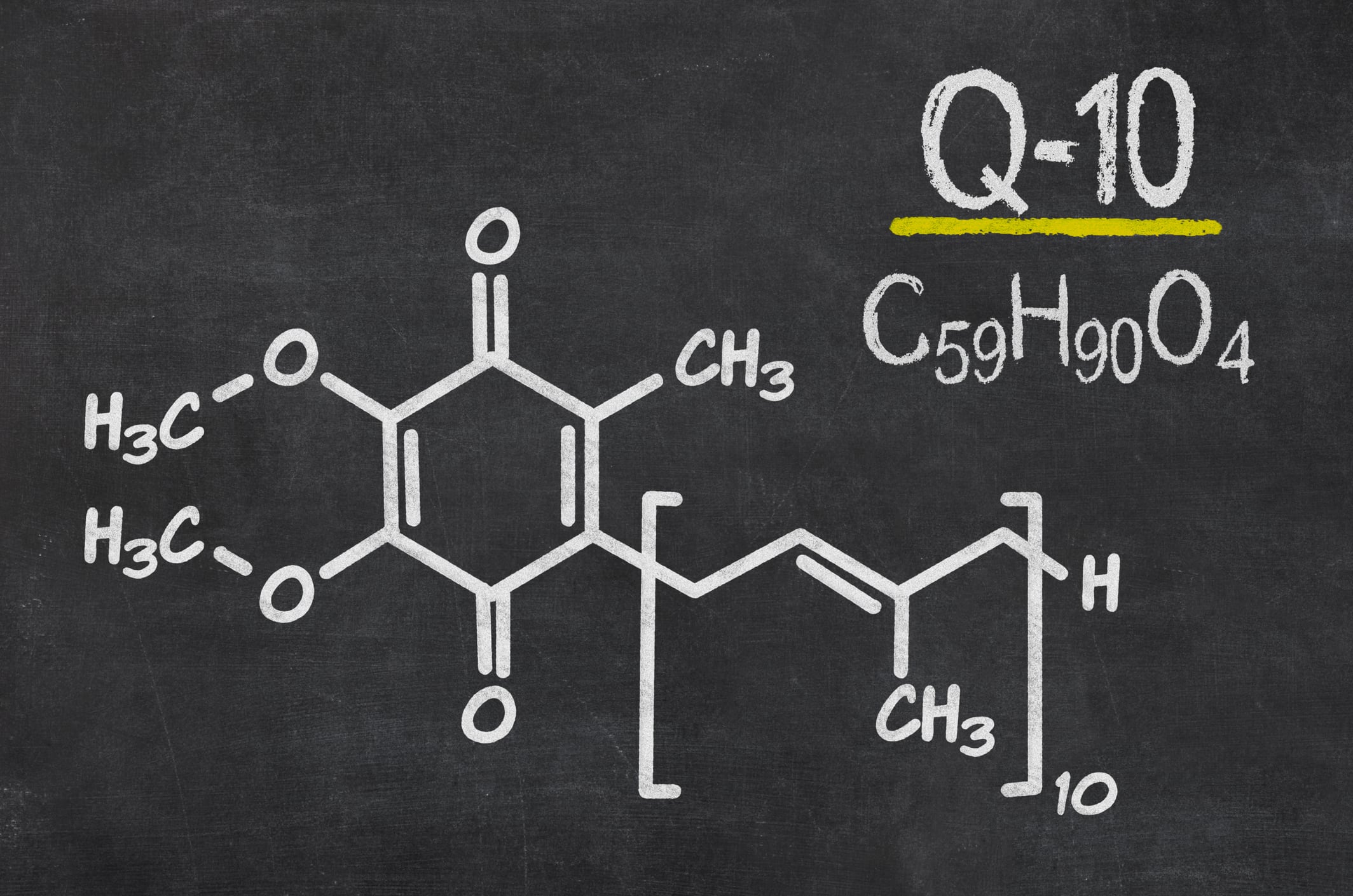Benefits were still evident 12 years after the end of a randomized clinical trial using selenium and CoQ10, with participants in the supplementation group having a 40% lower cardiovascular (CV) mortality risk than people who participated in the placebo group.
“The CV mortality risk reduction is significant and stable in all the well-known risk populations, including those with IHD [ischemic heart disease], hypertension or diabetes,” reported researchers from Linköping University in PLoS One.
“Even after combining groups in order to increase stepwise the size to the subpopulations, the risk reduction is stable and comparable to the risk reduction obtained in the separate subgroups, indicating a robust effect caused by the intervention.
“It is tempting to speculate that permanent or progressive structural changes took place in the subjects of the placebo group during the interventional four-year period, explaining the apparent slowing down of CV pathogenesis in the supplemented group.”
“The statistical power is phenomenal”
Commenting independently on the study’s results, Dr Mark Miller, principal of Kaiviti Consulting, LLC, told NutraIngredients-USA that there are a number of thought-provoking elements to the study’s findings.
“First, the statistical power is phenomenal (P<0.0007), so it is not a marginal observation,” he said. “Second, the combination of selenium & CoQ10, given for 4 years, reduced cardiovascular mortality 12 years AFTER the study concluded so the effects are remarkably persistent.
“Third, the treatment worked if you had baseline diabetes, hypertension, ischemic heart disease or severe cardiac impairment, alone or in various combinations - the benefits were still evident 12 years later.
“Fourth, the differential between treated and placebo groups as far as risk for cardiovascular death is getting wider over time. In other words, the magnitude of the benefits increase over time (for those still alive).
“And finally, what may be the most important insight, is that the actions are primarily in women where the risk reduction was significant at P<0.0004 but for men it was only a trend at P<0.057.”
Epigenetics?

Dr Miller added that the data is “fascinating”, and begs the question of what is happening. The study was performed in Sweden, which has naturally low levels of selenium, and the authors said that the effect may be due to the replacement of selenium. “But I doubt that is enough,” said Dr Miller.
“The effects are too powerful for simple nutrient replacement. I think we need to be creative here and if I was to guess I think there is a major RESET of the drivers for disease and health.
“So what control mechanism has such long lasting effects? I think the best candidate is epigenetics. It is well-known that altering our genetic software has long-term implications on health. Specifically, it is most likely epigenetic regulation of oxidative stress, inflammation and mitochondrial function.
“Given that the ramifications of this reset are apparent after 12 years, plus the magnitude of these benefits is getting larger, it is clear that the treated group was sent down a different path. In that context, this is a pioneering biomedical path, where we can learn to enhance both longevity and our healthspan ... well at least for women,” added Dr Miller.
Study details
The original study involved 443 healthy elderly participants randomly assigned to receive either placebo or daily supplements containing CoQ10 capsules (200 mg/day, Bio-Quinon 100 mg B.I.D by Pharma Nord, Denmark) and organic selenium yeast tablets (200 micrograms/day, SelenoPrecise, also from Pharma Nord) for four years.
After an average of 12 years of follow-up after the end of the intervention, data was available for 181 people (100 in the supplement group and 81 in the placebo group). Results showed that cardiovascular mortality in the selenium plus CoQ10 group was 28%, compared to almost 39% in the placebo group. The reduction in the risk of cardiovascular mortality in the supplement group was 40%.
Separating the participants by gender revealed that women seemed to benefit more than men, which may be linked to lower CoQ10 levels in the women at the start of the supplementation period, said the researchers.
“The present 12-year evaluation of cardiovascular mortality after four years of intervention is unique, and should be regarded as a validation of the surprising results from the 10-year evaluation, and shows that the positive effects of the intervention persist,” wrote the researchers, led by Urban Alehagen from Linköping University.
“Therefore, the hypothesis arising from our results remains that the intervention with selenium and coenzyme Q10 inhibits the pathogenesis of irreversible, presumably structural, changes preceding cardiovascular events.”
The study was supported by Pharma Nord Aps, Denmark, and the County Council of Östergötland, and Linköping University.
Sweden vs elsewhere
The geographic location of the study may limit our ability to generalize the results: As mentioned before, selenium intakes in Sweden are low, with the mean level for the study population measured as 67 micrograms per liter of plasma. This is lower than the reported 90 to 140 microgram/L concentration needed for “full expression of the extracellular selenoprotein P”, said the researchers.
Therefore, supplementation at a dose of 200 micrograms per day was enough to optimize selenium levels, while levels in the placebo group remained deficient or insufficient for the length of the intervention. The European Food Safety Authority has established 300 micrograms as the tolerable upper intake level.
So how does this related to an American population? Selenium levels in the US are not low, with mean dietary selenium intakes in the US ranging from 93 micrograms in women to 134 micrograms in men (the RDA for US adults is 55 micrograms per day).
Participants in the well-known Selenium and Vitamin E Cancer Prevention Trial (SELECT), for example, had baseline selenium intakes of at least 120 micrograms per day, and supplementation with 200 micrograms per day of the mineral would have pushed them above the tolerable upper limit. (SELECT was ended prematurely when no effects on prostate cancer were observed. Subsequent data analysis revealed a potential increased risk of prostate cancer in men taking vitamin E only.)
Selenium Facts

Selenium is an essential micronutrient, and is considered to be an antioxidant. The mineral is included in 25 selenoproteins in the body, with diverse roles including immune support, thyroid function and healthy sperm. The issue for selenium, as for other nutrients, is that you can get too much of a good thing.
A review paper by Joyce McCann and Bruce Ames from the Nutrition and Metabolism Center at Children’s Hospital Oakland Research Institute in Oakland (CHORI) indicated that moderate deficiency in selenium may have long-term detrimental effects (FASEB Journal, 2011, Vol. 25, pp. 1793-1814).
For more information on selenium and to read our 2016 interview with renowned selenium researcher, Prof Margaret Rayman, please click HERE.
CoQ10 facts

CoQ10 plays a vital role in the production of chemical energy in mitochondria – the 'power plants' of the cell – by participating in the production of adenosine triphosphate (ATP), the body's co-called 'energy currency'.
It has been studied for its role in cognitive health, heart health, and anti-aging (in oral and topical formulations). It has also been shown to benefit those suffering from angina, heart attack and hypertension.
Source: PLoS One
2018; 13(4): e0193120, doi: 0.1371/journal.pone.0193120
“Still reduced cardiovascular mortality 12 years after supplementation with selenium and coenzyme Q10 for four years: A validation of previous 10-year follow-up results of a prospective randomized double-blind placebo-controlled trial in elderly”
Authors: U. Alehagen et al.


